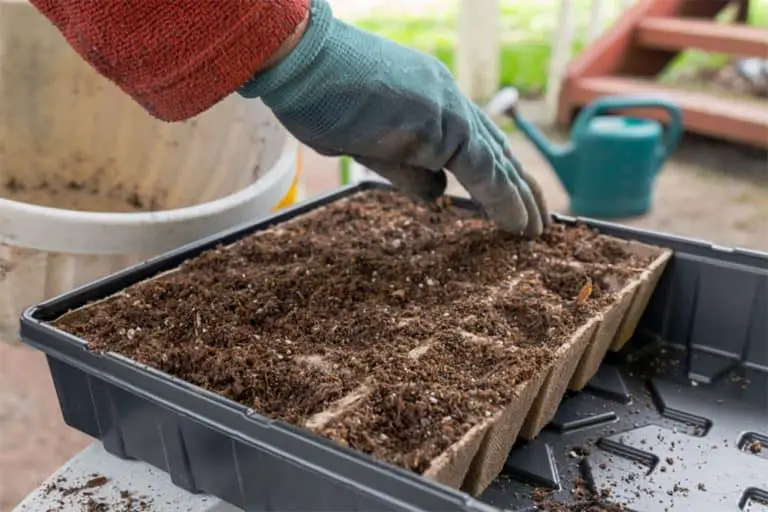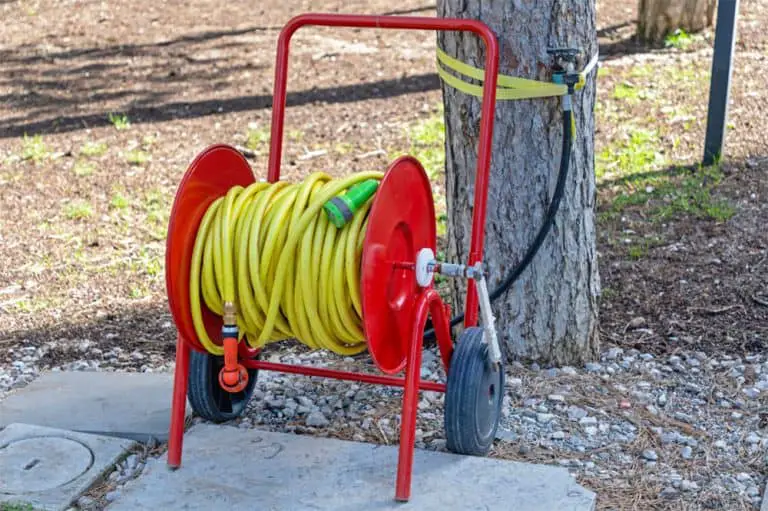7 Best Hydroponic Nutrients for Vegetables
Did you recently start growing hydroponic vegetables and are trying to find the best hydroponic nutrients for vegetables to keep them healthy and produce a lot of vegetables?
A lot of people have started setting up hydroponic systems in their homes to grow vegetables because there are a lot of vegetables that are easy to grow hydroponically.
Everything you need to know about choosing the best hydroponic nutrients for vegetables will be covered in this article.
If you think growing vegetables hydroponically can be a great way for you, consider trying out this hydroponic startup grow kit

The Top 7 Best Hydroponic Nutrients For Vegetables
- Best Overall: ALL BIO – Organic Plant Food Starter Kit – Vegetable Garden Nutrients Kit
- Best Budget-Friendly: MasterBlend 4-18-38 Tomato & Vegetable Fertilizer
- Best Premium: Go Grow Hydroponic Plant Food – Gardening Nutrients for Non-GMO Veggies, Leafy Greens, Herbs, and Flowers
- Best Organic: Microbe Life Hydroponics Yield Enhancer
- Best Variety Set: Ten Green Fingers Hydroponic Nutrients Dry Fertilizer Powder 6 Variety Grow Box
- Best Liquid: Blue Planet Nutrients | Calcium Magnesium Iron for Vegetables
- Best Powder: Lettuce Greens and Herbs Hydroponic Nutrients
DISCLOSURE
Some of the links on here are affiliate links and I may earn if you click on them, AT NO EXTRA cost to you. Hope you find the information here useful! Thanks.
Related Articles:
- 11 Best Cordless Pruners
- 11 Best Hydroponic Nutrients – Gardeners Recommendation
- Hydroponic Basil – A Guide to Keeping It Fresh and Healthy
- Top 11 Best Hedge Shears
What Are Hydroponic Nutrients for Vegetables and Why Do You Need Them?
Vegetable plants usually receive nutrients through the soil that they are planted in.
Hydroponic growing (also known as deep water culture) uses water instead of soil.
Since hydroponic vegetable plants are grown entirely in water, they are not receiving these nutrients. Instead, you need to add hydroponic nutrients for vegetables into the water that they are growing so that they can absorb the nutrients from the water instead.
Here are some of the best nutrients for deep water culture that are important for hydroponic vegetable plants:
- Nitrogen
- Phosphorous
- Potassium
- Calcium
- Magnesium
- Sulfur
- Iron
- Manganese
- Copper
Your hydroponic vegetable plants need these nutrients so that they can grow healthy and big as well as ensure that you have bountiful vegetable harvests.
Each type of plant has a different nutrient requirement and you will need to adjust the types of nutrients that you use to meet the needs of your plants.
Leafy vegetables like lettuce and spinach generally prefer lower nutrient concentrations compared to fruiting vegetables like tomatoes and cucumbers.
You should check the nutrient levels and pH levels of the water that your plants are growing in every 5-10 days. You can check these levels with a multi-reading handheld meter.
Top 7 Best Hydroponic Nutrients for Vegetables
1.ALL BIO – Organic Plant Food Starter Kit – Vegetable Garden Nutrients Kit
This multi-functional ALL BIO – Organic Plant Food Starter Kit – Vegetable Garden Nutrients Kit can be used indoors or outdoors and for both hydroponic and soil growing.
This nutrient kit will improve overall health for your plants as well as increase productivity so that you will be able to harvest more vegetables from each plant.
This kit has 3 different sets of nutrients that will help your plants grow well and comes with instructions on how to use them.
All Bio also has nutrients specifically for flowers and herbs.
Type: Dry Hydroponic Nutrients
Pros
- Easy to use
- Different types of nutrients
Cons
- More expensive
2.MasterBlend 4-18-38 Tomato & Vegetable Fertilizer
This MasterBlend 4-18-38 Tomato & Vegetable Fertilizer provides the best nutrients for hydroponic tomatoes. You should get some if you are growing tomatoes hydroponically and want them to grow well.
This hydroponic fertilizer comes in 3 different sizes so you can choose the right one depending on the number of plants that you are growing.
It is recommended to use this fertilizer together with calcium nitrate and magnesium sulfate for best results. Calcium nitrate should always be mixed separately to avoid nutrient lockout.
Type: Dry Hydroponic Nutrients
Pros
- Easy to use
- Suitable for tomatoes
Cons
- Not suitable for all types of vegetables
3.Go Grow Hydroponic Plant Food – Gardening Nutrients for Non-GMO Veggies, Leafy Greens, Herbs, and Flowers
Go Grow Hydroponic Plant Food is a convenient and easy way to provide all the nutrients that your vegetables need.
The pre-measured packets just need to be mixed with water and don’t require you to measure and combine different nutrients to get the right mix making this some of the best dry hydroponic nutrients.
These individually packed fertilizers come in 2 sizes: 3.5 gallons and 5.5 gallons, so you can choose the size that is more suitable for you.
Go Grow channels a portion of their profits towards providing resources to grow healthy produce to those in struggling communities.
Type: Dry Hydroponic Nutrients
Pros
- Easy to use
- Pre-packed
Cons
- More expensive
- The pre-mixed combination may not be suitable for all plants
4.Microbe Life Hydroponics Yield Enhancer
The Microbe Life Hydroponics Yield Enhancer is perfect for you if you are growing fruiting vegetables and want to increase the quantity and size of vegetables that you can harvest.
It is made from organic matter and provides balance to the growing medium that you are using.
This hydroponic fertilizer is meant as an additional nutrient boost to your plant and should be used alongside other hydroponic nutrients for vegetables.
Type: Liquid Nutrients
Pros
- Easy to use
- Organic ingredients
- Larger harvests
Cons
- Larger and heavier
- Needs more nutrients to be balanced
5.Ten Green Fingers Hydroponic Nutrients Dry Fertilizer Powder 6 Variety Grow Box
Since the Ten Green Fingers Hydroponic Nutrients Dry Fertilizer Powder 6 Variety Grow Box comes in a variety box, you will be able to choose the right type that meets the needs of your plants at any given time.
The 6 types of fertilizers that come in this set have specific combinations of nutrients that are best for different stages of plant growth as well as different types of plants.
- No Mix – all-purpose, best nutrients for lettuce
- Easy Mix – suitable for all vegetables, best nutrients for hydroponic cucumbers
- Tri Mix – suitable for all vegetables, best nutrients for hydroponic tomatoes
- Grow – start seeds, root growth, ripen vegetables
- Bloom – encourage budding and blooming
- Fruit & Flower – set and boost fruits & flowers
Since these are dry hydroponic nutrients, they will need to be mixed with water before using them. One teaspoon of the dry hydroponic nutrients makes 1 gallon of liquid fertilizer.
This set of hydroponic nutrients for vegetables also comes with calcium nitrate and Epsom salt that will add additional nutrients to your plants.
Type: Dry Hydroponic Nutrients
Pros
- Variety of different types of nutrients
- Easy to use
- Comes with measuring spoons
Cons
- You may not need all the different types
6.Blue Planet Nutrients | Calcium Magnesium Iron for Vegetables
These nutrients from Blue Planet Nutrients | Calcium Magnesium Iron for Vegetables will help to keep your plant healthy in many different ways.
The combination of nutrients works to prevent blossom end rot which causes flowers to dry up before the fruit can form.
By preventing blossom end rot, your fruit-bearing vegetable plants will be able to bear more fruits as the flowers will be able to develop into healthy fruits.
Apart from that, these hydroponic nutrients for vegetables will also increase nutrient absorption within the plant and help plants use these nutrients effectively.
Type: Liquid Nutrients
Pros
- Easy to use
- Different types of nutrients
Cons
- Larger and heavier
- Needs more nutrients to be balanced
7.Lettuce Greens and Herbs Hydroponic Nutrients
If you are growing hydroponic vegetables such as lettuce and other herbs, the Lettuce Greens and Herbs Hydroponic Nutrients is the best choice for you.
This fertilizer is specially formulated for leafy greens and has the right combination of macronutrients and micronutrients for healthy vegetable plants.
The two-part system provides the best mix of nutrients and helps avoid any complications from mixing all the different nutrients at the same time.
This fertilizer is easy to use and you just need 3 five gallon buckets and a measuring cup.
Type: Dry Hydroponic Nutrients
Pros
- Easy to use
- Suitable for leafy green vegetables
Cons
- Not suitable for all types of vegetables
- Large size packaging
The Different Types of Hydroponic Nutrients for Vegetables
Different vegetables have different nutrient requirements and you should choose the right type of nutrients for your vegetable plants.
You may need to consider what are the best nutrients for indoor growing and for outdoor growing.
Your vegetable plants may also need different types of nutrients depending on the stage of growth that they are at. Seedlings have different needs compared to fruiting vegetable plants.
While you may be tempted to make homemade hydroponic nutrients, it can be complicated to get the right balance of nutrients. It might be a good idea to get pre-mixed nutrients for your hydroponic vegetables, especially if you are just starting.
General Growth
The first type of nutrients that your plants need is for general growth. These nutrients will help the roots of the plant grow strong and healthy while encouraging foliage growth.
The best hydroponic fertilizer for general growth contains higher levels of nitrogen and potassium.
Calcium and magnesium are also very helpful for encouraging general and leaf growth.
Most plants will need these nutrients from the seedling stage and leafy vegetables will benefit from this throughout their different growth stages.
Here are some hydroponic plant nutrients that you can check out for general growth: Fox Farm Hydroponic Nutrients and General Hydroponics Nutrients.
Fox Farm Hydroponic Nutrients
General Hydroponics Nutrients.
Flowering & Fruiting
The second type of hydroponic nutrients for vegetables that you will need is to encourage flowering and fruiting. You will need these nutrients for fruiting vegetable plants such as tomatoes, peppers, and cucumbers.
Fruiting vegetables benefit from high levels of potassium and phosphorus.
Even among the different fruiting vegetables, there may be a variation on what the right balance of nutrients should be.
The best hydroponic nutrients for tomatoes may not be the exact right hydroponic nutrients for peppers. You can generally find specific nutrient mixes for each type of vegetable.
Here are some hydroponic nutrients that you can check out for tomatoes, peppers, and cucumbers.
5 Benefits Of Using Hydroponic Nutrients for Vegetables
- Cost-Effective
The hydroponic nutrients for vegetables that you buy in liquid or powder form are usually very concentrated and need to be mixed with water to get the right level of concentration for your plants.
This means that a little can go a long way and your purchase can last you for a long time.
If you buy an all in one hydroponic nutrient, you will not need to buy multiple nutrients to make sure that your plants’ nutrient needs are met. You also will not need to worry about how to mix hydroponic nutrients.
- Healthy Roots
Hydroponic nutrients for vegetables will ensure that your plants have strong and healthy roots.
While healthy roots are essential for all plants, they are especially crucial for hydroponically grown vegetables as they will need to absorb all the nutrients that are needed from the water.
The best nutrients for hydroponics that are important for root growth are phosphorous and potassium.
- Leaves
Healthy and abundant leaves are important for most plants but they are extra important for leafy vegetables that are planted hydroponically.
Without the right hydroponic nutrients for vegetables, your leafy greens won’t grow big and healthy leaves that you can then turn into a healthy salad.
- Flowering & Fruiting
If you are growing fruiting vegetables, using hydroponic nutrients for vegetables will help produce lots of flowers and eventually fruits for you to enjoy.
Apart from increasing the number of fruits and flowers, the nutrients will also ensure that your flowers and fruits form and develop well.
If you want those large crops of tomatoes, peppers, and cucumbers, you will benefit from making sure that they are given the right balance of hydroponic nutrients that encourage flowering and fruiting.
- Bigger Harvests
As implied above, hydroponic nutrients for vegetables will give you bigger harvests than if you tried to grow your vegetables without adding the right nutrients.
You will be able to get bigger and more vegetables to harvest and eat, share with family and friends, or even sell.
Providing the perfect environment for your plants growing needs is also the key to a bigger harvest. Ensure a well-ventilated space with optimal humidity levels with a ventilation exhaust fan

5 Things To Look For In Good Hydroponic Nutrients for Vegetables
- Suitable For Vegetables
Hydroponic nutrients are not created equal and you should look for hydroponic nutrients that are formulated especially for vegetables.
Don’t just grab the cheap hydroponic nutrients that you find online. Instead, make sure that they are suitable for the type of vegetables that you are growing.
This will ensure that your plants are receiving the right types of nutrients that will help them grow well.
- Encourages Leaf Growth
For leafy green vegetables, using nutrients that encourage leaf growth is crucial as this will make a big difference in the quantity and quality of the vegetables that you harvest.
Some common leafy green vegetables that are grown hydroponically are lettuce, spinach, and kale.
- Encourages Flowering & Fruiting
If you are growing fruiting vegetables, look for the right nutrients that encourage flowering and fruiting. Apart from encouraging flowering and fruiting, these nutrients will also make sure that the fruits grow big and healthy.
Some common fruiting vegetables that are grown hydroponically are tomatoes, peppers, and cucumbers.
- Easy To Use
There are a lot of different types of hydroponic nutrients for vegetables on the market and some of them may be more complicated to use than others.
Choose hydroponic nutrients that are easy to mix and use as this will ensure that you are going to use them correctly and will not harm your plants as a result.
Look for hydroponic nutrients for vegetables that have clear instructions and guides on how to use them as well as hydroponic nutrients that do not have many steps or need special equipment to measure or use them.
- Natural/Organic
Since you are going to be eating the vegetables that you are planting hydroponically, the nutrients that you are adding to the water must be from natural or organic sources.
Try to look for organic hydroponic nutrients so that the vegetables that you harvest are free from harmful chemicals and are safe for you and your family to eat.
Conclusion
I hope that this guide has been helpful and you have been able to find the best hydroponic nutrients for vegetables.
With all the knowledge about nutrients for your hydroponic vegetables, I am sure that your vegetables are going to be healthy and you will be able to harvest a lot of vegetables.












![Best Hose Splitter [2022 Guide]](https://aboveandbeyondgardening.com/wp-content/uploads/2021/10/Best-Hose-Splitter-768x512.jpg)
![Best Cordless Grass Shears [2022 Update]](https://aboveandbeyondgardening.com/wp-content/uploads/2021/10/Best-cordless-grass-shears-768x512.jpg)


![11 Best Cordless Pruners [2023 Update!]](https://aboveandbeyondgardening.com/wp-content/uploads/2021/08/compressedDepositphotos_11439955_l-2015-768x512.jpg)
